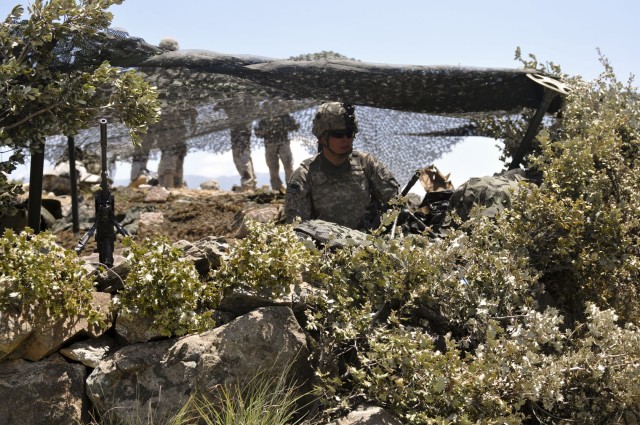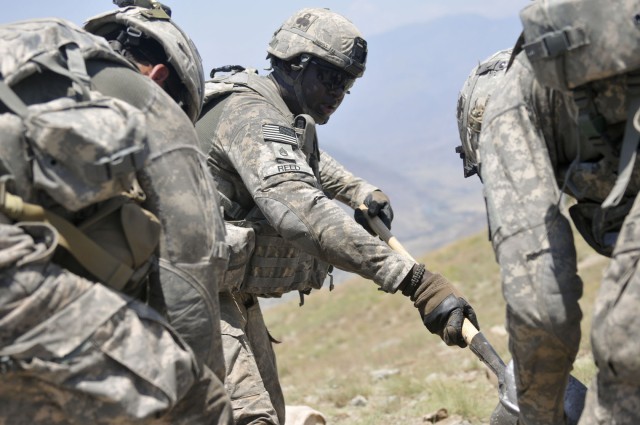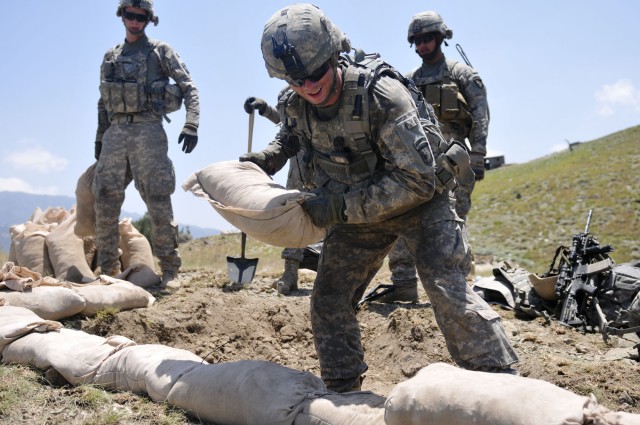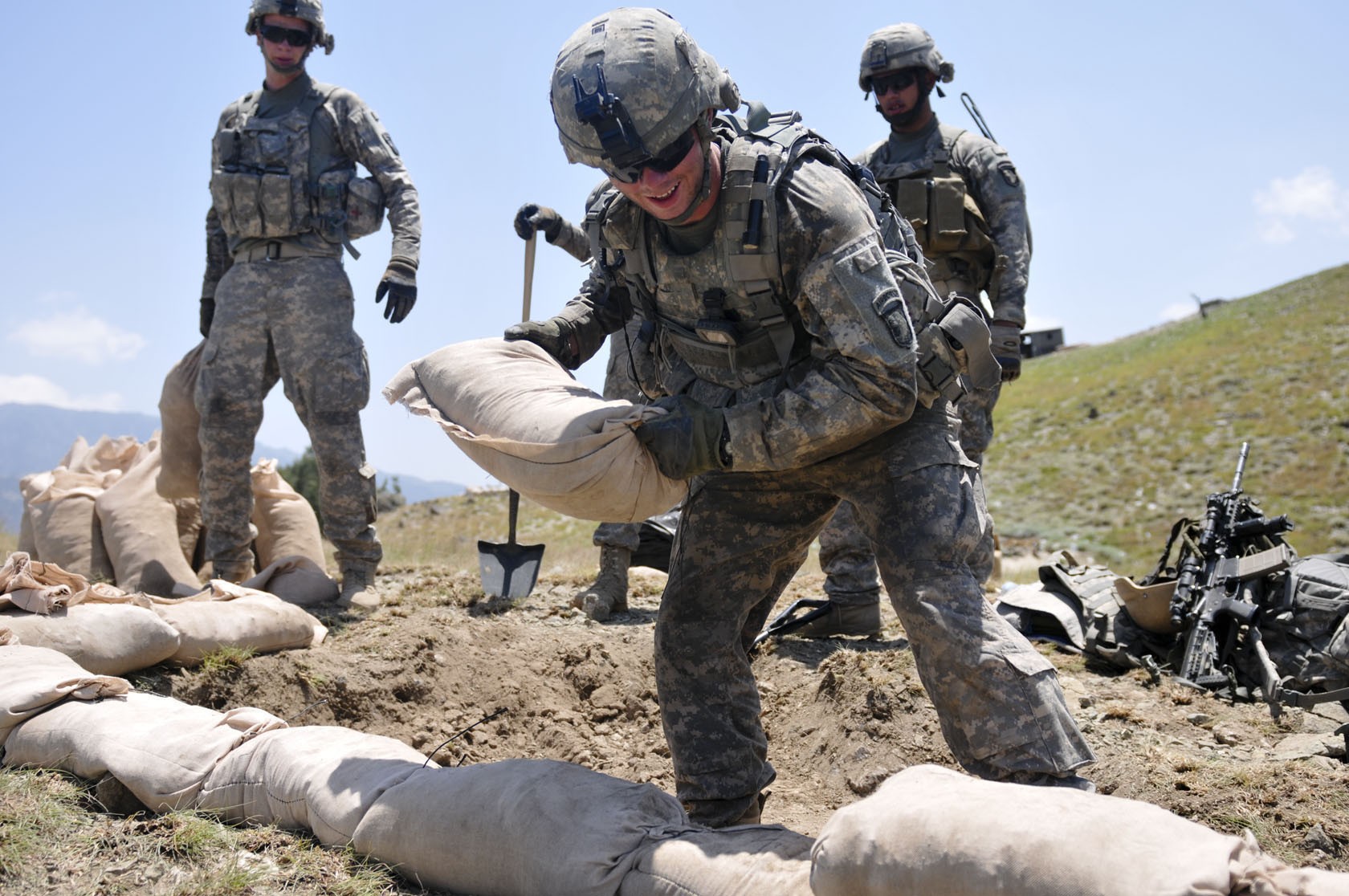KUNAR PROVINCE, Afghanistan -- The back of the Chinook opened and the small team of scouts, mortarmen and infantrymen exited over knee-high piles of Meals, Ready-to-Eat and bottled water into the darkness of Helicopter Landing Zone Hawk July 7.
Days earlier, some of these same Soldiers from Headquarters Company, 2nd Battalion, 327th Infantry Regiment, helped expel insurgents from the valley below during Operation Strong Eagle. Now they were back to ensure insurgents did not return by helping the Afghan National Army build a permanent outpost high above the Marawarah District.
"This particular ground is important because it allows us to provide over-watch and security," said Maj. Eric D. Anderson, the executive officer of 2nd Battalion, 327th Infantry Regiment, stationed out of Fort Campbell, Ky. "We are also denying the enemy the ability to use that terrain. Time and time again throughout history, the enemy has rushed to the high ground [during military operations]."
There are no hardened buildings; no dining facilities; no morale, welfare and recreation centers; and no bathrooms on this new observation post. Despite the lack of amenities, the Soldiers enthusiastically make do and carry on with their mission.
ANA and U.S. Soldiers begin working early before the temperature surpasses the 100-degree mark. Staff Sgt. Oretheous O. Reed, a squad leader with 1st Squad, 2nd Platoon, fills sandbags alongside his squad and ANA soldiers.
"We are helping the ANA secure their area," said Reed. "Helping them to build better fighting positions. They get excited when we work with them."
The Soldiers build their fighting positions with sandbags, large rocks and indigenous vegetation. They maintain situational awareness of both the elements and possible enemy movement in the area.
"Safety is number one," Reed said. "We pick safe times to work, like when it's overcast. When the sun comes back out, we are back down again. We never stop drinking water."
He also takes time to mentor the ANA soldiers when needed.
The ANA, in turn, show their appreciation by sharing a traditional Afghan lunch of cooked rice, potatoes and beans with the American Soldiers.
During the long hot days, the Soldiers do their best to keep morale up with occasional debates about the best actors, movies and singers.
Evenings present new challenges. Soldiers create guard duty rotations and double-check their night time optical devices before being completely enveloped in darkness. The winds pick up considerably and temperatures drop substantially.
There are no mattresses. Soldiers do their best to find a comfortable spot in the dirt, ignoring the tiny rocks that poke at them through the night.
One Soldier showed ingenuity by constructing a small blanket from material found during the day and 550-cord. Some use empty MRE boxes, uniform tops and poncho liners to provide additional protection from the wind.
Although, the valley below is almost completely desolate, the Soldiers understand the importance of being alert during their shifts.
"You do not want to let your buddy down," said Pfc. Frank K. Copass, a radio telephone operator with the scout platoon.
"You don't want someone to sneak up on you because you weren't scanning your sector," said Copass.
When daylight breaks, the Soldiers start the process all over. For four days they continue improving fighting positions, pulling guard duty, keeping cool during the scorching day and keeping warm at night.
"Local nationals have ownership of security, static posts, patrolling and the town itself," said Anderson. Eventually this OP will be turned over completely to Afghan National Security Forces.
Until then, the Soldiers continue their rotations high above the District of Marawarah.






Social Sharing